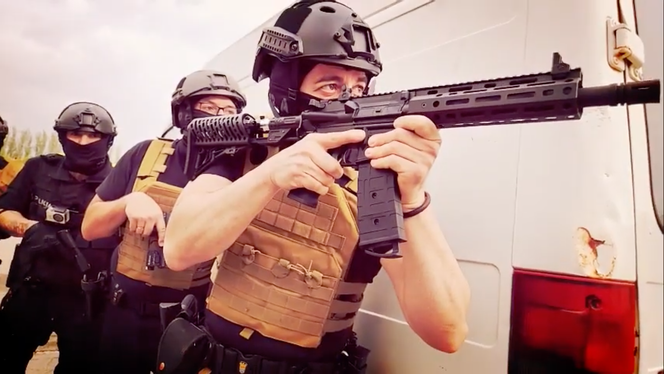

LETTER FROM MADRID

The owner of GOA Tactical has switched off his cell phone and is no longer replying to messages. The website of this Spanish private security training center, established in 1999, displays a warning message overlaid on the homepage: "Contrary to what is disclosed in the latest news, GOA Tactical is not a PMC [private military company] that can train armies to fight in Ukraine. In such a case, it would violate Article 591 of the Criminal Code." The article in question stipulates that "anyone who, during a war in which Spain does not intervene, carries out any act which compromises the State's neutrality will be punished."
This clarification illustrates the awkward situation that the academy, located in the quaint town of Alpicat in the Catalan province of Lérida and previously unfamiliar to most Spaniards, now faces. On August 30, it advertised itself in the small newspaper El Segre, explaining its goal of preparing 200 people to go and help Ukraine in the war against Russia.
The article, accompanied by the cell phone number of the company's boss, Francisco Galvan, specified that applicants had to have two years experience in the army, police or security sector, no criminal record, and pass an interview. Above all, they had to attend a five-day course in Barcelona for a fee of €700 in order to obtain a certificate of aptitude enabling them to join military units in Ukraine, where they would be hired for a salary ranging from €2,800 to €3,400. The next day, the academy told the main Spanish media, which was stunned by this public recruitment of mercenaries, that some 30 people had already volunteered.
"We have an agreement with Ukrainian army units to certify their preparation," Galvan told La Vanguardia newspaper. "We don't hire them, the Ukrainian government does. We only exercise a filter." The course he offers involves testing candidates' abilities to hold a position for three days and two nights, occupy enemy trenches and withstand highly stressful situations. The equipment used is the same as for paintball. "In a five-day course, we can't train people, but we can find out if they're fit" to go to war, he said to Catalan TV channel TV3, insisting on compliance with the legal framework.
"If this company acts as a go-between for experienced people to join the International Ukrainian Legion and become soldiers, there's nothing illegal about it. On the other hand, if they then leave to join a PMC, they would be mercenaries. The problem with this announcement is that it lacks transparency," security expert Chema Gil told Le Monde.
You have 51.12% of this article left to read. The rest is for subscribers only.
